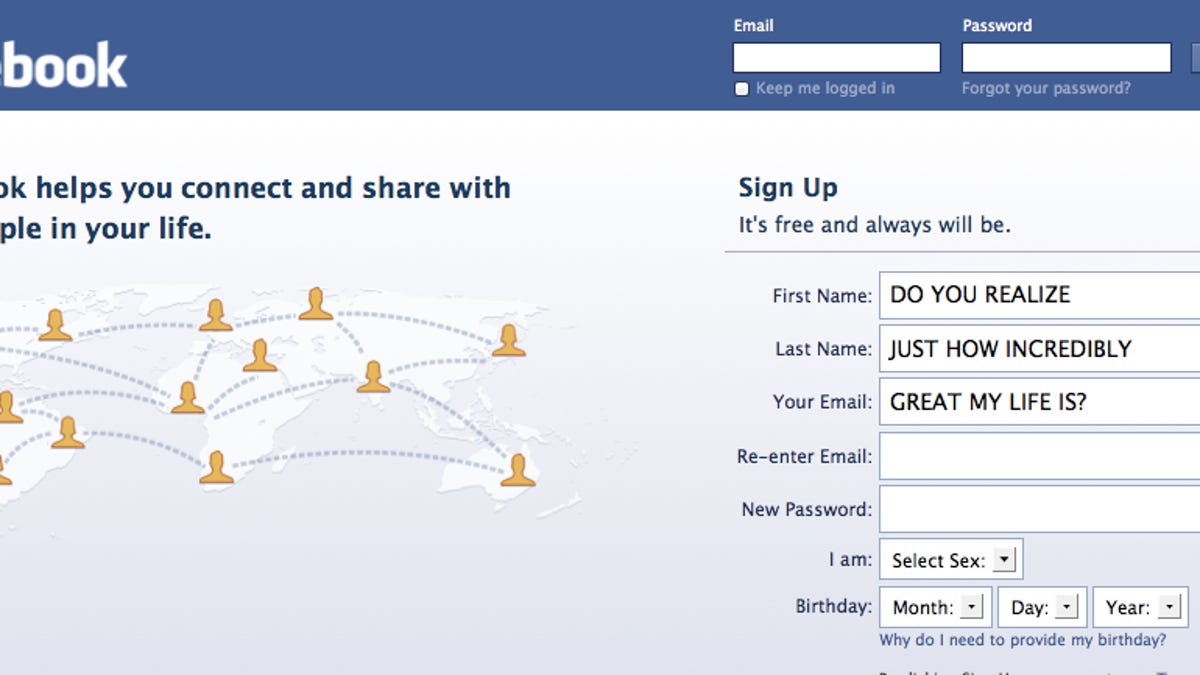Boasting on Facebook 'can feel as good as sex'
A team from Harvard -- where else? -- delves deep into the emotions that surround "self-disclosure." The conclusion is that it is positively orgasmic.

This morning, three women in Starbucks turned to me, smiled, gave me their cards and suggested I come to their houses for chardonnay and vinegar chips anytime I wanted.
Oh, I'm sorry. I didn't see you there. I was just practicing my Facebook status updates.
Given that I don't really do that Facebook thing much, this hasn't been easy. But I have moved by research from the great university of Harvard telling me that if I want to seek sexual pleasure outside of direct carnality, I should simply boast on Facebook.
I can feel you calling a doctor for me right now. However, it has been brought to my attention that this revolutionary research is sure to change sexuality as we know it.
It seems, according to these Harvardites, that 30 to 40 percent of everyday speech consists entirely of telling others what we feel or think.
I thought that was merely in America. It is a common perception for those of us brought up in Europe that an American will reveal their recent divorces, affairs, and surgeries within minutes of one actually meeting them. (In Europe, this might take decades.)
But, hark at this, Harvard neuroscientist, Diana Tamir suggests in her full report that a humungous "80 percent of posts to social media sites (such as Twitter) consist simply of announcements about one's own immediate experiences."
The guinea pigs in this neuroscience research were even offered money to just shut up about themselves. But oh, no.
"People were even willing to forgo money in order to talk about themselves. This helps to explain why people so obsessively engage in this behavior. It's because it provides them with some sort of subjective value: It feels good, basically," Tamir said, according to the Daily Mail.
You might be wondering just how much money these people were willing to forgo. Well, it was between 17 and 25 percent of the potential money they could earn.
Scientifically speaking, talking about yourself stimulates the mesolimbic dopamine system (including the nucleus accumbens and ventral tegmental area) in your brain. This is the area that gets turned on by money, food and sex. Or, as it's known in suburbia, dinner and a movie.
You might think I am somehow exaggerating. But here is Tamir's report again: "We suggest that humans so willingly self-disclose because doing so represents an event with intrinsic value, in the same way as with primary rewards such as food and sex."
Boasting gives one primary (dare one say, even primitive) reward.
The methodology in this research seems to have been to allow them to choose between answering questions about their love for pizza or about other people -- such whether the president enjoys skiing.
In these pages, we have often suggested that society is corroding like a 1970s Fiat. But even we could not have imagined that the degeneration could have happened to such a base degree.
I would like to say some more about this fine study.
However, this afternoon I have three Michelin-starred chefs preparing lunch specifically for me, followed by going to see "The Avengers" with Kristen Stewart and the Archbishop of New York. Oh, and then there's dinner with members of both political parties who are asking for my help in the upcoming election.

